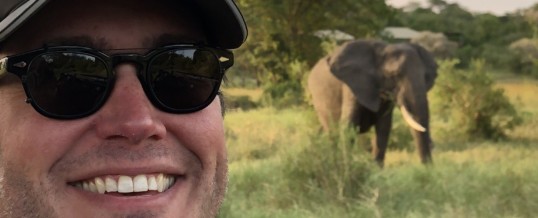
When I entered the Hanna Perkins preschool in the 1970s, I was more than a little afraid. I’m sure I clung to my mother as you might to a tree in a tsunami. My father had just died, and throughout my childhood a separation or an unfamiliar place would often stir up a tragic feeling.
The first thing I remember about Hanna Perkins is that I had no need to hide such feelings there. Like the big world into which I was taking my first small steps, the feelings themselves were very big, sometimes unpredictable, and “hard to manage,” as I recall some preschool teachers putting it. They understood feelings and honored them by acknowledging them, and by granting a child a little bit of sovereignty in the face of this big, overpowering world and the big, overpowering feelings it inspires. At first, while I got comfortable at Hanna Perkins, my mother stayed nearby and the teachers gave me a bit of control. They said I could get her if I needed to. What a rare gift—to compromise with the needs of a child instead of trying to legislate those needs out of him on behalf of a nervous morality.
Freedom must have limits, of course. You had to wear snow pants if you wanted to play outside on the playground. It was Cleveland, after all. One day I showed up without my snow pants. They offered me some extra snow pants to wear. I refused. I was not going to wear some unknown snow pants with their foreign smells and textures. But the world could not be stopped from spinning on its axis so that I might have my own snow pants in time to go outside. The teachers tried and tried to convince me to wear their alien snow pants, but I chose to sit and cry until outside time was over. If nothing else, I had a right to my tears.
Later I praised Hanna Perkins to my mother because “You’re allowed to cry there.” The lesson was to acknowledge feeling instead of stuffing it down into the dark places where emotions fester, only to erupt in unhealthy ways. Acknowledging feelings and understanding their protean manifestations, I’ve come to think, helps liberate a person from the unreasonable dominion of emotion. Hanna Perkins helped liberate me from the darkness.
But it did more than that. Hanna Perkins was my first experience of the world outside my family. It was an ordered world, an empathic world, a rational, kind, just, and well-lit world that made me optimistic toward human institutions. I felt like a success at Hanna Perkins, and carried on in my schooling with the expectation of success. I remember Hanna Perkins teachers like Iris Harlan and Barbara Streeter with trust and affection. Inhuman forces like time and cancer could murder my father, but the human community could be a fairer, brighter place.
I went on to excel at school and eventually graduated from the Johns Hopkins University School of Medicine. But I also knew my own heart, and when it came time to make the difficult decision to leave medicine and become a full-time writer, I dared to try. I moved to New York, struggled, published, got married, and started my own family in an unfamiliar city. I have two boys of whom I could not be prouder, even when they refuse to wear snow pants. I feel I owe so much to Hanna Perkins and I wish the many other schools where I have attended and sent my own boys could be more like it. It was a light in the darkness when I most needed it.
Austin Ratner is author of the novels In the Land of the Living and The Jump Artist, winner of the Sami Rohr Prize for Jewish Literature; and the non-fiction book The Psychoanalyst’s Aversion to Proof. He lives in Brooklyn, NY.
Explore our kindergarten and preschool programs. For younger children, our parent/toddler program provides developmentally minded fun.
APR
2023


About the Author:
Austin Ratner is author of the novels In the Land of the Living and The Jump Artist, winner of the Sami Rohr Prize for Jewish Literature; and the non-fiction book The Psychoanalyst’s Aversion to Proof. He lives in Brooklyn, NY.